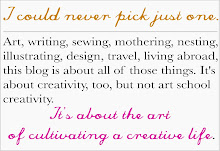Mapping my hybrid life on a personal, passion level involves drawings, notations, and novel writing. The stuff I do daily. When it connects with others, like in conversation with the 10 cultural innovators I'll be talking to on Feb 28 as part of
Dialogue2010 at
expat+HAREM, it becomes multi-dimensional, an elixir of dynamic change and inspiration. In talking about abandoning the map to live more fully,
dialogue becomes art.
Anastasia Ashman, expat+HAREM producer, identifies a crucial element of what happens when identity is fluid, when location, desire, and being in the present are invited to shape a meaningful life:
"a wider orbit around the inner me" is allowed to emerge. That is what I hope will be explored in Dialogue2010: unearthing the things we need to let go of in order to move forward, blurring our boundaries, and developing our own idiosyncratic centers of balance.
As the first inception of
Art is Dialogue, I invite you to join in the twitter chat
#dialogue2010, or add a
comment, and listen to the podcast when it's made live this spring.












